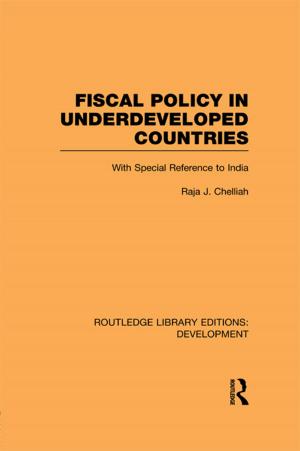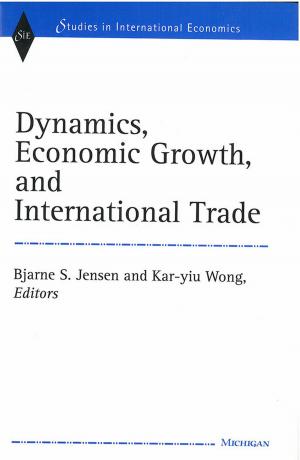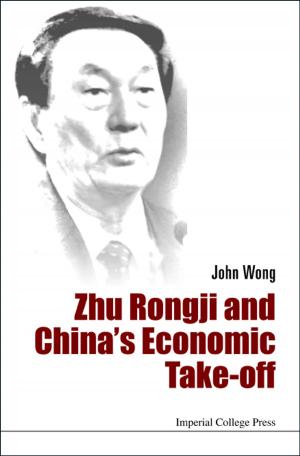Evolutionary Alarm Sounds Within Languages
Nonfiction, Health & Well Being, Psychology, Experimental Psychology, Business & Finance, Economics, Economic Development| Author: | Chris Oszywa | ISBN: | 9781310378072 |
| Publisher: | Chris Oszywa | Publication: | November 19, 2013 |
| Imprint: | Smashwords Edition | Language: | English |
| Author: | Chris Oszywa |
| ISBN: | 9781310378072 |
| Publisher: | Chris Oszywa |
| Publication: | November 19, 2013 |
| Imprint: | Smashwords Edition |
| Language: | English |
This book begins by challenging the prevailing assumptions about the reasons behind current and past economic development throughout the world. Consider the following questions: “Would Russia be as industrious as Germany if they spoke German as their primary language?”, or “Would African countries commence fast economic development if they spoke Chinese Mandarin?”
The book points out that the economically competitive and developed societies communicate using Germanic languages (including English, German, Dutch, Swedish and Norwegian) and Asiatic tonal languages (such as Mandarin, Cantonese, Japanese and Korean), while societies characterized by the poorest economic developments are ones which, for instance, communicate using Arabic, Hindu or African languages.
The book argues that Germanic language and Asiatic tonal languages contain with in its syllables a high concentration of evolutionary alarm/warning call sounds. These alarm/warning sounds automatically stimulate early brain structures, making the people more aroused/alert, worried, cautious. Also making the people appear more shy and introverted. These increased worry, cautiousness and arousal are essential psychological traits for economic development. As once people are aroused, cautious and worried education programs become effective, they pay more attention to all aspects of the complexities of modern economical system.
Conversely, the languages of societies which struggle economically do not contain many evolutionary alarm sounds (e. g. the Hindu language, Arabic, African Languages). As a result people in these societies are less aroused/alert, worried and cautious. Thus making the people appear less shy and more extroverted.
The book points out that in the past, the languages of many highly civilized societies (such as the ancient Greek and Roman civilizations) contained alarm sounds within their structures. Because of the phenomenon of “language change”, the alarm qualities within those languages were gradually replaced with other sounds, so that the societies exhibited corresponding downfalls.
The first chapter begins with an exploration of alarm sounds, describing their usefulness in a natural ecological setting and the ways in which they exist within syllables of languages.
The second and third chapters evaluate the major languages of the world in terms of the concentration of alarm sounds within their syllables. I would particularly like to draw attention to the high correlations between the concentration of alarm sounds within syllables of languages and the economic developments within countries which utilize such languages.
The fourth chapter demonstrates that languages used by many highly economically and structurally developed ancient civilizations, such as the ancient Greek and Roman civilizations, contained high concentrations of alarm sounds within their syllables, in comparison to civilizations which were less well developed in terms of those categories.
Chapter five investigates the impact of the concentration of alarm sounds within languages on the psychology and behavior of individuals who utilize such languages.
Chapter six describes the impact which alarm sounds within languages have on the economic development of countries, suggesting that adequate levels of alertness (as conceptualized using Wundt’s “inverted U” relationship between arousal and performance) are necessary for their economic growth.
The theory presented in the book is applicable, and postulates that by altering languages of societies which struggle economically, by significantly increasing the concentration of alarm/warning sounds, we will increase the arousal/alertness of the people in these societies, allowing then to commence fast economic development, solving most of world’s problems. (Note that one cannot educate increased arousal, as it is a function of the earlier brain structures. Increased arousal can only be stimulated by alarm/warning sounds within language).
This book begins by challenging the prevailing assumptions about the reasons behind current and past economic development throughout the world. Consider the following questions: “Would Russia be as industrious as Germany if they spoke German as their primary language?”, or “Would African countries commence fast economic development if they spoke Chinese Mandarin?”
The book points out that the economically competitive and developed societies communicate using Germanic languages (including English, German, Dutch, Swedish and Norwegian) and Asiatic tonal languages (such as Mandarin, Cantonese, Japanese and Korean), while societies characterized by the poorest economic developments are ones which, for instance, communicate using Arabic, Hindu or African languages.
The book argues that Germanic language and Asiatic tonal languages contain with in its syllables a high concentration of evolutionary alarm/warning call sounds. These alarm/warning sounds automatically stimulate early brain structures, making the people more aroused/alert, worried, cautious. Also making the people appear more shy and introverted. These increased worry, cautiousness and arousal are essential psychological traits for economic development. As once people are aroused, cautious and worried education programs become effective, they pay more attention to all aspects of the complexities of modern economical system.
Conversely, the languages of societies which struggle economically do not contain many evolutionary alarm sounds (e. g. the Hindu language, Arabic, African Languages). As a result people in these societies are less aroused/alert, worried and cautious. Thus making the people appear less shy and more extroverted.
The book points out that in the past, the languages of many highly civilized societies (such as the ancient Greek and Roman civilizations) contained alarm sounds within their structures. Because of the phenomenon of “language change”, the alarm qualities within those languages were gradually replaced with other sounds, so that the societies exhibited corresponding downfalls.
The first chapter begins with an exploration of alarm sounds, describing their usefulness in a natural ecological setting and the ways in which they exist within syllables of languages.
The second and third chapters evaluate the major languages of the world in terms of the concentration of alarm sounds within their syllables. I would particularly like to draw attention to the high correlations between the concentration of alarm sounds within syllables of languages and the economic developments within countries which utilize such languages.
The fourth chapter demonstrates that languages used by many highly economically and structurally developed ancient civilizations, such as the ancient Greek and Roman civilizations, contained high concentrations of alarm sounds within their syllables, in comparison to civilizations which were less well developed in terms of those categories.
Chapter five investigates the impact of the concentration of alarm sounds within languages on the psychology and behavior of individuals who utilize such languages.
Chapter six describes the impact which alarm sounds within languages have on the economic development of countries, suggesting that adequate levels of alertness (as conceptualized using Wundt’s “inverted U” relationship between arousal and performance) are necessary for their economic growth.
The theory presented in the book is applicable, and postulates that by altering languages of societies which struggle economically, by significantly increasing the concentration of alarm/warning sounds, we will increase the arousal/alertness of the people in these societies, allowing then to commence fast economic development, solving most of world’s problems. (Note that one cannot educate increased arousal, as it is a function of the earlier brain structures. Increased arousal can only be stimulated by alarm/warning sounds within language).















